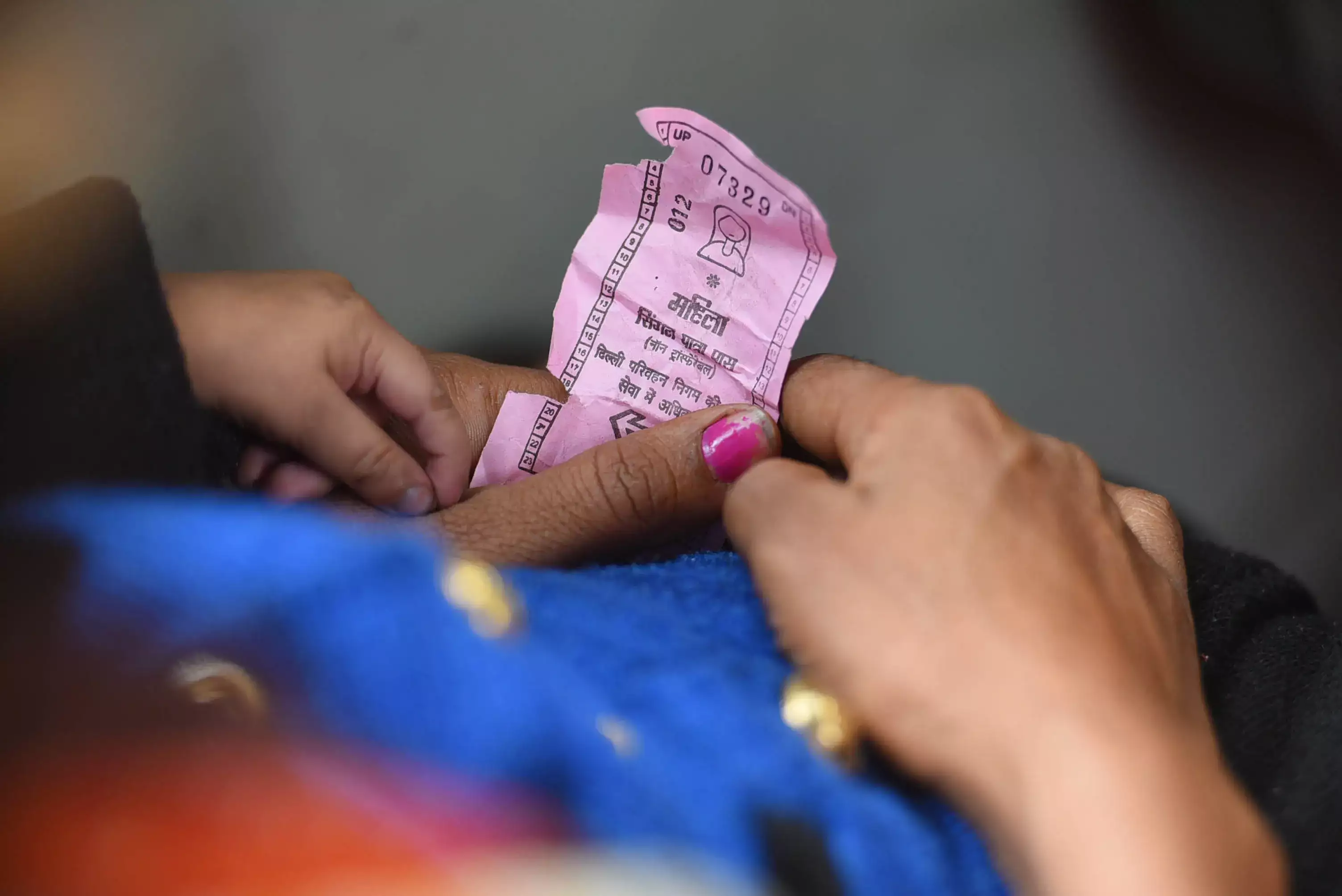 The free bus travel scheme for women, launched by Delhi govt on Oct 29, 2019, is applicable on both DTC and cluster buses operated.
The free bus travel scheme for women, launched by Delhi govt on Oct 29, 2019, is applicable on both DTC and cluster buses operated.Pink passes, which are issued to women passengers for free travel Delhi Transport Department (DTC) and cluster bus service in the city, have shown a steady and consistent growth, according to data.
In 2020-21, pink tickets accounted for 25% of total sales. The figure rose to 28% in 2021-22 and 33% in 2022-23. The year 2023-24 has seen a significant uptick, as pink tickets have comprised 46% of all tickets sold.
In 2023-24, DTC recorded a daily average passenger ridership of nearly 26 lakh while the figure for cluster buses stood at 16.4 lakh, according to the data.
The free bus travel scheme for women, launched by Delhi govt on Oct 29, 2019, is applicable on both DTC and cluster buses operated by Delhi Integrated Multi-Modal Transit System Limited (DIMTS). During the last financial year, DTC had a higher percentage of pink passes issued, accounting for 48.2% of total daily tickets compared to the cluster bus service, which saw 44.4%.
According to experts, various factors have contributed to the trend. Anil Chhikara, faculty member at Asian Institute of Transport Development and former deputy commissioner in Delhi’s transport department, said, “One significant reason is the substantial number of working-class individuals relying on this mode of transportation. Additionally, the higher cost of metro tickets has made the free bus service a more attractive option for many women.”
Moreover, Delhi roads are considered unsafe for two-wheelers, which has led to a predominantly male ridership in that category, he said. “As a result, the free bus service has become the preferred choice for women, providing them with a secure and affordable means of commuting,” he added.
The total number of buses from both the DTC and cluster fleets is 7,485. The DTC fleet has 1,231 AC CNG buses, 1,878 non-AC CNG buses and 1,250 electric low-floor buses while the cluster has 750 AC CNG buses, 1,997 non-AC CNG buses and 379 e-buses.
“This is an important milestone. Delhi has shown how free travel can empower women in the city. The rising number of women bus travellers over the years shows the impact it has created and how much they have benefited from this scheme,” transport minister Kailash Gahlot said, adding that the idea was “to provide a safe space, not just free rides”.
“Participation of women in the workforce is a critical driver of social advancement and economic expansion. In the past, female labour force participation has remained below average due to a lack of opportunities to assist their mobility,” said Gahlot.
Sandhya Prashar, who lives in Lado Sarai and works in Sarai Kale Khan, said, “We don’t have a metro station nearby, so I used to take an auto first, which cost me INR 30-40, and then take the metro. But now I prefer using the bus service. It’s free, so I end up saving over INR 1,500 on commuting.”
